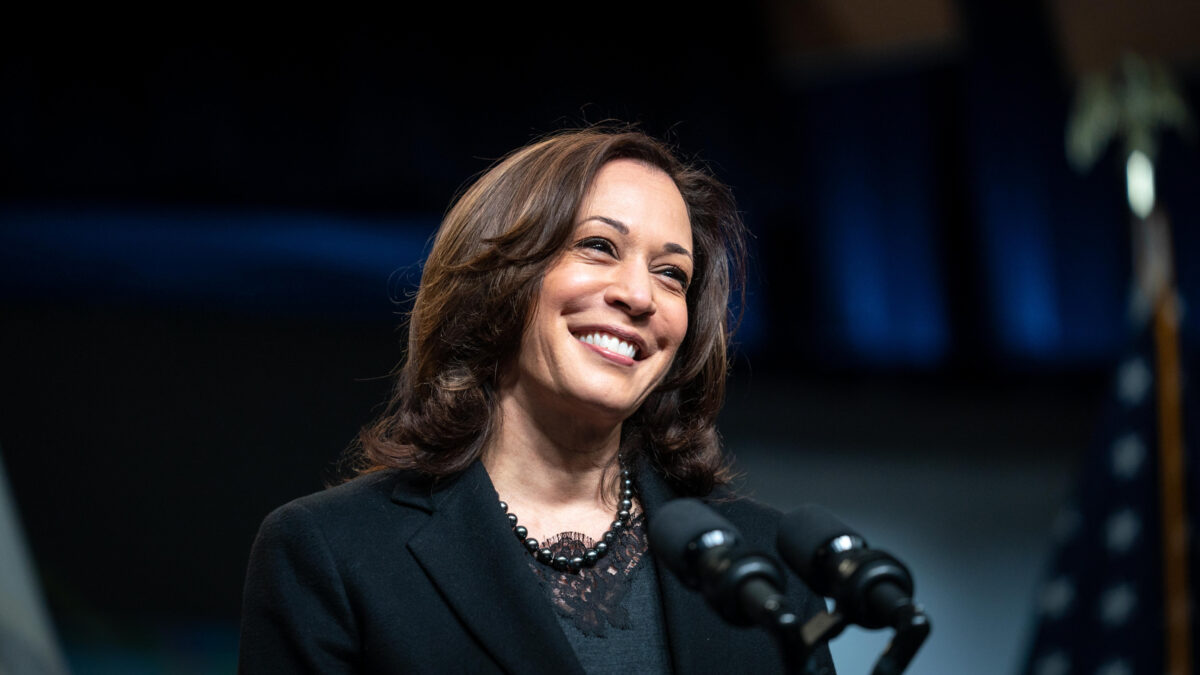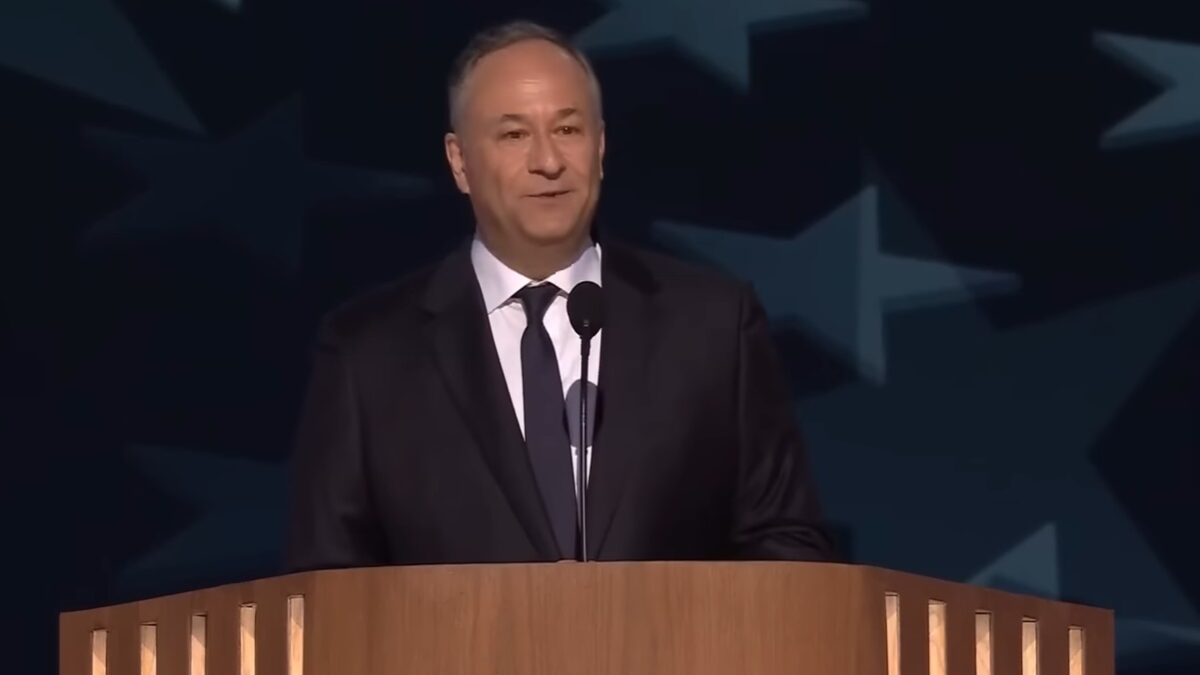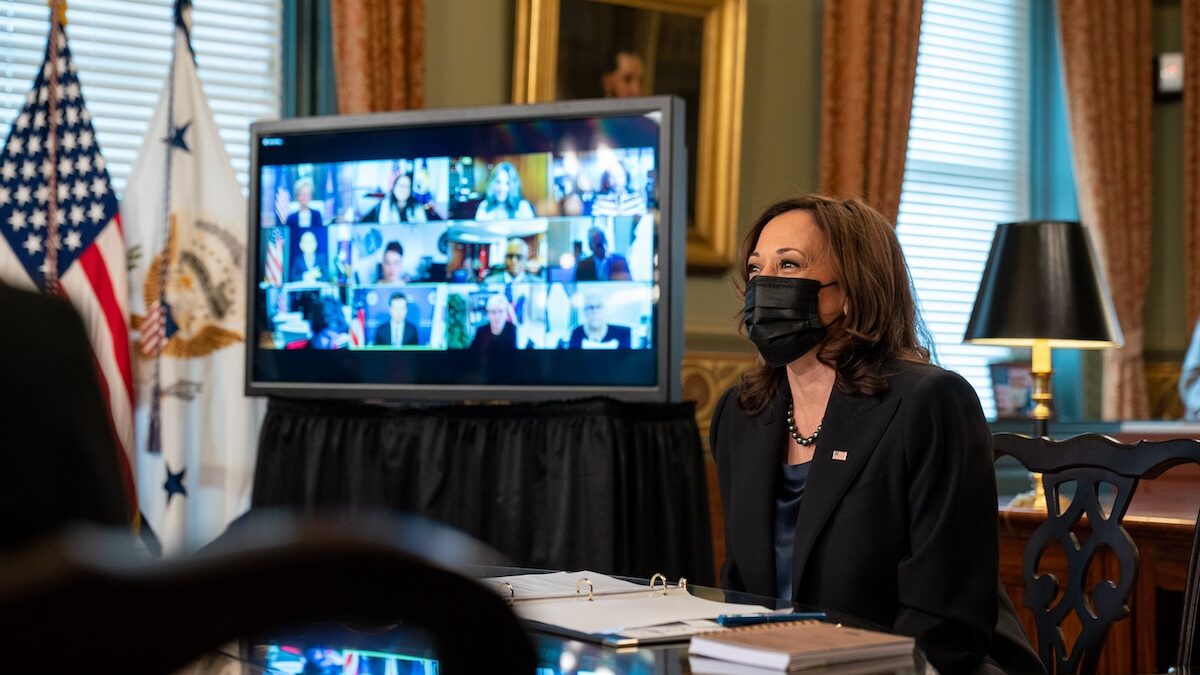
There was a media ethics summit in Washington DC this week. A bunch of national political reporters and observers, and various “thought leaders” gathered within the high glass walls at NPR headquarters to grapple with media distrust, polarization, the unorthodoxies and attacks of the Trump administration, battling fake news, and slaying partisan bubbles.
I know, I know. The jokes write themselves. Bubbles, glass houses, a Beltway journalist stuttering in consternation when presented with the very idea of journalism ethics before exploding like Bradley Whitford in the culminating scene of “Billy Madison.” I’ve thought of all of them and made some of them there!
Too often media acts like it’s an industry in its heyday, congratulating itself for its toughness and truthiness, while ignoring its own role in its decline, which is ongoing and unhealthy. Yes, this gathering was a bubble of its own— I suggested maybe dinner at Waffle House after, to really break out of our comfort zones—and a lot of the same people talking to each other. But I was there, along with a handful of other right-of-center speakers notably none pro-Trump, and there were some valuable thoughts.
On priorities and real diversity:
.@perrybaconjr: Majority of country is white and I want to hear what they think on race. We need to cover diversity of country better-from Black Lives Matter to Trump supporters. Factchecking POTUS isn't our main job & 20min talking about "covfefe" is a waste #PoynterEthicsSummit https://t.co/VRWzDtiyex
— Indira Lakshmanan (@Indira_L) December 4, 2017
On monumental missed stories:
.@PostBaron: We should have seen Trump — or someone like him — coming, “before he descended the escalator.” We won’t make that mistake again; reporters are covering every corner of the U.S. #poynterethicssummit
— Doris N. Truong (@DorisTruong) December 4, 2017
On the dangers of self-absorption:
“The press should realize that the story isn’t about us… When Jared Kushner goes to CNN and says cut 25 percent of stats, that’s a big deal. When CNN announces that they’re not going to the White House Christmas Party, that’s chicken shit.” — @AlHuntDC #PoynterEthicsSummit
— Scott Nover (@ScottNover) December 4, 2017
On the value of self-awareness:
"Trump tweets entirely too much. So do reporters" — @AlHuntDC. Yes, I tweeted this.#PoynterEthicsSummit
— Scott Nover (@ScottNover) December 4, 2017
And on the real costs of mistakes:
“Even small mistakes are used to undercut the entire credibility of the press," says @peterbakernyt who admits he had a correction this morning. #PoynterEthicsSummit
— Scott Nover (@ScottNover) December 4, 2017
Still, as always happens at such gatherings, I’m left with the concern many aren’t understanding the severity or origin of the problem.
This was the inaugural Poynter Journalism Ethics Conference. This is why it was put on: “Almost a year to the day since President-elect Donald Trump declared the media ‘fake news,’ Poynter is convening leading Washington correspondents and editors for a thought leadership summit on strengthening political journalism and public trust in a polarized era.”
The urgency, the need for the inaugural daylong conference, comes not from falling trust in media, which has been happening for a long time, but mostly from Trump’s attacks on media.
The name of the 2017 Poynter Media Trust Survey, a valuable poll and behavioral study on all these media trends, confirms the raison d’etre for this year’s gathering of grapplers— “You’re Fake News!” And the first paragraph of the executive summary: “During the Trump presidency, the United States has witnessed unprecedented attacks on the press from the highest office in the land. It is essential to understand how these attacks have affected attitudes toward the press.”
We’ve got our correlation and causation mixed up. Trust in media isn’t low because Trump attacks the media. Trump attacks the media because trust in media is low.
This Is a Pre-Trump Trend He’s Capitalizing On
This started long before Trump, as Poynter’s own annual media surveys and Gallup’s polling show clearly. The Poynter survey shows media has seen a slight uptick in trust in the Trump era, overall, but that comes from a rise among Democrats, who have consistently had a better outlook on press coverage than Republicans over decades in Gallup’s poll.
This is a generation’s worth of eroding trust, particularly among conservatives, populists, and those outside the coasts and big cities, finding a voice in Trump. Before that, it found a voice in talk radio and Fox News, whose successes (and own share of narrative-suiting mistakes) were borne of the traditional media’s underserving half of America.
That doesn’t excuse Trump’s nonsense, damaging tweets about pulling broadcast licenses and changing libel laws. Trump doesn’t care much about anyone’s speech if it disagrees with him, and that’s an extremely bad trait in a president making public pronouncements. It doesn’t mean media is without its share of hard-working reporters who put in time all over America, trying to understand those who mistrust them most.
But the survey’s more disturbing findings—44 percent believe the media makes up stories about Trump more than once in a while—haven’t emerged simply because Trump asserts these things. He asserts these things because he’s an opportunist with a target that gives him plenty of opportunities.
Let’s take the weekend before this summit, for instance. On Friday, Brian Ross and ABC reported that President Trump told Gen. Mike Flynn, who had just pleaded guilty to lying to the FBI, to contact Russians during the campaign. In fact, the timing was during the transition, which would be noncontroversial for an incoming administration, not collusion by a campaign involved in a conspiracy. Oops. Ross was held accountable after several hours of misfires.
At first the “correction” was merely called a “clarification,” but eventually Ross was suspended for four weeks. The ABC president took Ross off future Trump stories, and reportedly excoriated his staff, seeming to understand the damage the report had done.
Of Course It Didn’t Stop There
In the same 24-hour period, The New York Times reported a story based on transition emails, one of which from K.T. McFarland was excerpted thusly:
On Dec. 29, a transition adviser to Mr. Trump, K. T. McFarland, wrote in an email to a colleague that sanctions announced hours before by the Obama administration in retaliation for Russian election meddling were aimed at discrediting Mr. Trump’s victory. The sanctions could also make it much harder for Mr. Trump to ease tensions with Russia, ‘which has just thrown the U.S.A. election to him,’ she wrote in the emails obtained by The Times.
It is not clear whether Ms. McFarland was saying she believed that the election had in fact been thrown. A White House lawyer said on Friday that she meant only that the Democrats were portraying it that way.
When all of journalism Twitter seized on this rather inflammatory excerpt, the New York Times reporter tweeted the context of the email:
.@McFaul See attached. As we said in the story, it’s no clear that she is saying she believed that election had been thrown. And WH lawyer in story said she was referring to how Dems portrayed it. pic.twitter.com/cjXNpCKIJO
— Michael S. Schmidt (@nytmike) December 2, 2017
In the full version, it’s rather clear McFarland is putting that thought into the minds and mouths of Obama officials, not declaring it herself. Here’s where some of the radical transparency summit attendees suggested would have been helpful in the story itself.
In both of these cases, it’s to the credit of the news organization that they addressed the mistakes or mischaracterizations. But in both cases, the mistakes seem suspiciously suited to the version of events that makes the Trump administration and transition look as bad as possible. Their impact was widespread and swift.
In the same two days, Republican Sen. Orrin Hatch faced a distortion of one of his quotes. Joe Scarborough, and all those in journalism who retweeted him, claimed Hatch, who co-authored the Children’s Health Insurance Program (CHIP), had said this about the children insured under it: “I have a hard time wanting to spending bilions and billions and trillions of dollars to hep people who won’t help themselves—won’t lift a finger— and expect the federal government to do everything.”
This has almost 10K RTs, many from reporters, and is completely false. Scarborough was hardly alone in lying about what Hatch said, but the lack of a link suggests that the dishonesty is intentional. All of these people owe Hatch an apology. https://t.co/8Rg6c08jMy
— AG (@AGHamilton29) December 3, 2017
He was not saying that about CHIP. He was saying it about other programs that he was claiming take money away from CHIP, which is a point with which journalists are welcome to take issue, but is different than what they reported. To his credit, liberal journalist Ezra Klein disseminated a clarification with a video:
https://twitter.com/ezraklein/status/937348381361496064?ref_src=twsrc%5Etfw&ref_url=https%3A%2F%2Ftownhall.com%2Ftipsheet%2Fguybenson%2F2017%2F12%2F04%2Fmore-fake-news-media-spreads-false-quote-from-gop-senator-n2417527
Again, this mistake seems to run headlong right into the prevailing narrative that the Republican Party is full of a bunch of heartless creeps spinning their monocles on chains made of children’s tears. Scarborough later deleted the tweet.
These mistakes are not Trump’s fault. The fact they all run one direction, and are happily echoed by a profession full of people who too often share the same viewpoints and biases, is not Trump’s fault. It was decades of this that created the deficit in media trust, then Trump showed up to yell about it to a very receptive public.
Consider This Behavior Study About Media Consumption
Part of the behavioral study Poynter paired with the survey this year reflects just that. They ran an experiment with a group of media consumers, all of whom got one of four different types of news stories, to see how their perceptions of media would be affected by those stories.
Respondents in the first condition (media error) read about how CNN had retracted a story linking a Trump associate to the Trump-Russia investigation and that three people involved in the story had left the company as a result. Participants assigned to receive a media attack article were given an article where President Trump attacks coverage of the Russia investigation as ‘fake news.’ Respondents in a Russia investigation condition instead read an article stating that the Senate Intelligence Committee was investigating possible links between Russia and the Trump campaign and transition team. Finally, some respondents read a non-political control article entitled ‘Five sauces for the modern cook.’
Those conducting the experiment expected the “mistake” and “attack” articles to change respondents’ views more than the Russia investigation and cooking control article did. Instead, those who read the Russia investigation article had about the same negative change as those who read the “mistake” and “attack” articles and “a direct attack by the President on the media had limited effects on perceptions of the media or support for press freedom.”
“[T]he mere mention of the Russia investigation in a placebo article that includes no specifics about news coverage prompts the expression of more negative views toward the media,” the summary notes.
Poynter plans to do more research on this, but it certainly suggests feelings about mistakes and bias were baked in before Trump came along, and that mistakes like those above may be baked into reception of even the most neutral Russia article. This effect is more pronounced with Trump supporters and Republican voters, who the survey shows have more negative views of media than other respondents do—the more informed the respondent, the more negative the view. Part of this is tribalism, but a lot of it is track record.
That doesn’t mean Trump can’t exacerbate things. When broken down by Trump-approval, the experiment showed Trump supporters had more negative reactions to media after exposure to the Russia investigation story and an “attack” story.
Notably, they did not react negatively to the “mistake” story, which outlined both CNN’s mistake and its firing of those responsible. It’s very good news for all of us if corrective action and accountability really do matter, even to those who are most skeptical of media. Mistakes will always happen, but the way they’re corrected can help.
I’m glad we’re trying to solve this problem. As a person with a foot in both worlds— traditional media and a conservative community that is deeply suspicious of it, with reason— I’m glad to be part of the discussion. It’s important to the country for the gulf between many American voters and the people who cover them to get smaller. But this problem did not appear in 2015 when a real estate magnate descended an escalator. The descent began decades ago, and until the industry grapples with that, it will continue to descend.









